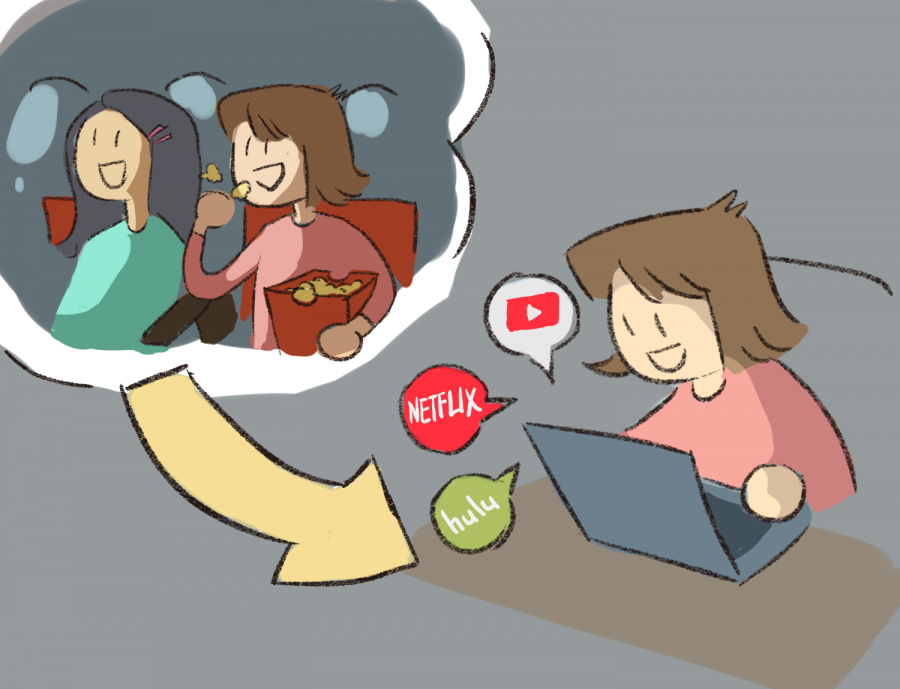Turning point of entertainment
With movie theaters closing, the public is increasingly turning towards online streaming services.
May 29, 2020
With the effects of the novel COVID-19 sparking new headlines every day, Hollywood and the often fast-paced world of the film industry have been put on a hold, silently waiting for the outbreak to subside before resuming as before.
Film events, from the Tribeca Film Festival in Manhattan to the 40th Annual Razzie Awards in Los Angeles, were canceled with no intention of rescheduling. However, it may be the cancellation of one event in particular, the Cannes Film Festival, originally set to take place from May 12-23, which had the largest cultural impact on the film industry.
A grand selection of future award-winning films that were initially presented at last year’s Cannes Film Festival included Parasite, Once Upon a Time in Hollywood and Portrait of a Lady on Fire. Cannes certainly has an important reputation for separating genius from mediocrity and for being the backbone of the art of filmmaking, an expectation they have honored for the last 74 years. Even with this expectation, however, festival director Thierry Frémaux was hesitant to host an online festival.
“Its soul, its history, its efficiency, [going online is] a model that wouldn’t work,” Frémaux said in an interview with Variety.
The reason for Frémaux’s reluctance to revamp the festival is clear: Cannes is also known for its extravagant display of affluence, with film actresses sporting embellished dresses and its iconic red carpet presenting Cannes as a prestigious gathering of film connoisseurs. An online option would simply make the general populace question the necessity of such an exclusive event, as even Cannes stresses that what matters are the films themselves.
However, a transition to online platforms may already be in the works. To be held on YouTube from May 29-June 7, film festivals worldwide are showing movies in a 10 day event named We are One: A Global Film Festival. This online festival also acts as a fundraiser, with viewer proceeds being donated to COVID-19 relief organizations.
The pandemic has made movie streaming services a necessity rather than a convenience, as it is no longer safe to spend hours in a crowded movie theater. Some anticipated movie releases have been regretfully delayed, but others have taken advantage of this situation and consequently made history.
The film Trolls World Tour had a very limited theater release on April 10 and was digitally released on the same day. After the weekend of its digital release, FandangoNow reported that Trolls World Tour had set the record for their most pre-ordered movie ever and was the top-selling movie every day for its first three days. After ranking number one in orders on every major video streaming platform, the film made over $40 million over its first weekend. Three weeks of digital sales resulted in an approximate $95 million gross, accruing a profit greater than the domestic theater gross of the first Trolls movie.
The success of Trolls World Tour throws the way people view movies into question. One thing known for sure is that immediate digital releases lose theater profits, so studios are theatrically releasing movies that are expected to attract a wider audience and gross much larger a profit, such as F9, by pushing back their release dates by nearly a year.
On the other hand, people are starting to realize that it’s easier to sit at home and pay less money to stream a movie. What live events like theaters or festivals are going to have to figure out is how to deliver a safe experience while offering something more valuable than the convenience of watching movies at home.


























































